Start your day right
Sign up for Essential California for news, features and recommendations from the L.A. Times and beyond in your inbox six days a week.
You may occasionally receive promotional content from the Los Angeles Times.
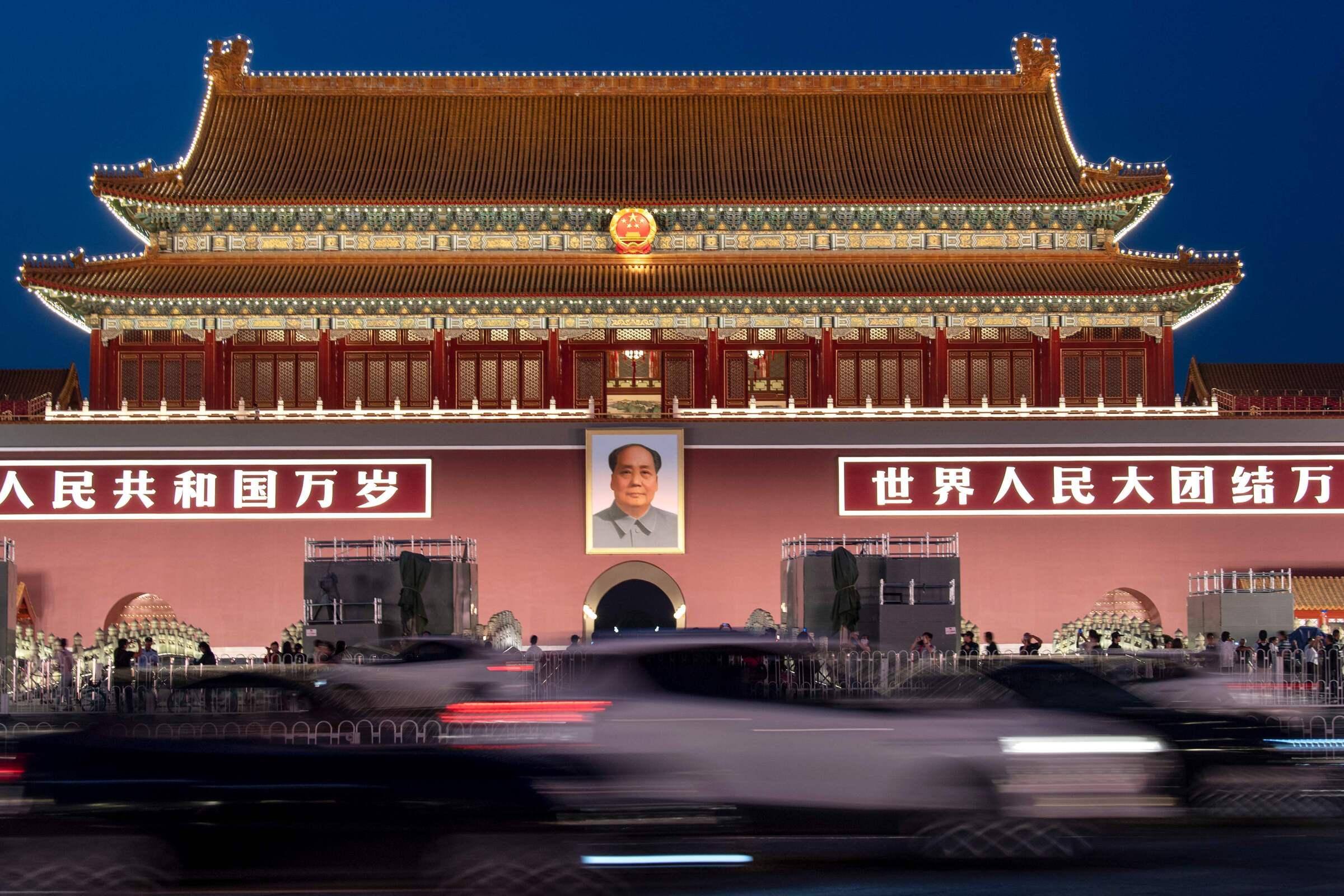
BEIJING — The 70th anniversary of the People’s Republic of China on Tuesday will mark a triumphal moment for the nation’s ruling Communist Party, as it surpasses the defunct Soviet Union’s 69-year existence and rivals U.S. global dominance.
As the party trumpets China’s stunning economic growth and poverty alleviation, authorities aim to keep its history of catastrophic, often cruel policies, including man-made famines and massacres that resulted in millions of deaths, hidden from its 1.4 billion people.
Founded in the early 1920s with Soviet support, the Chinese Communist Party initially collaborated with the Nationalist Party, but the two groups turned against each other. The Nationalists drove the Communist Red Army in a military retreat across China in 1934, with tens of thousands dying on the way. The Communists in turn mythologized their retreat as a revolutionary “Long March,” building Mao Tse-tung’s cult of personality as its tenacious leader and solidifying the party’s support base among rural peasants on the way.
A few years later, during the Sino-Japanese War, the Communists and the Nationalists formed a united front against Japanese forces. When that war ended in 1945, however, civil war resumed. In 1949, the Nationalists fled to Taiwan and the Communists and their allies founded the People’s Republic of China with Mao as its leader.
In recognition of the anniversary, The Times interviewed people in China about their lives during key moments in the country’s communist history. Here are some of their experiences.
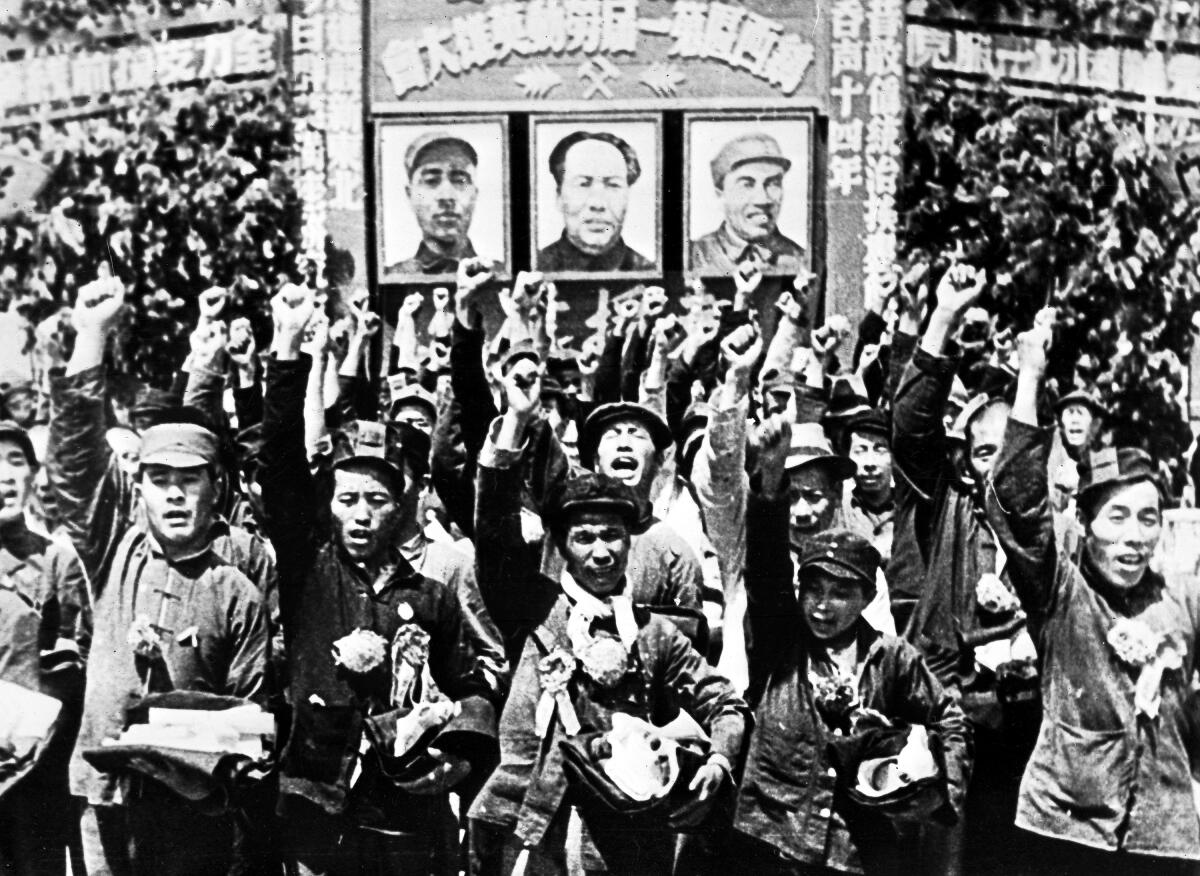
THE EARLY YEARS
1949-1960s: The theme of Mao’s China was constant struggle and radical revolution to achieve a Communist utopia. It was a period when ideology overrode reality, resulting in mass deaths.
Yu Wenhe was born in 1947, making him two years older than the People’s Republic of China. The son of a coal cart driver, he grew up in hardship.
“As a child, we just had buns and pickles all the time.”
Yu’s grandfather had been well off during the Qing Dynasty, which was overthrown in 1911. He was a bannerman attached to a noble Manchurian family that gave him three carriages he used to make a living. When the Japanese invaded in 1937, the family sold the carriages before they could be looted, but ended up bankrupt in the chaos. After the war, Yu’s father rented carts to haul coal around Beijing.
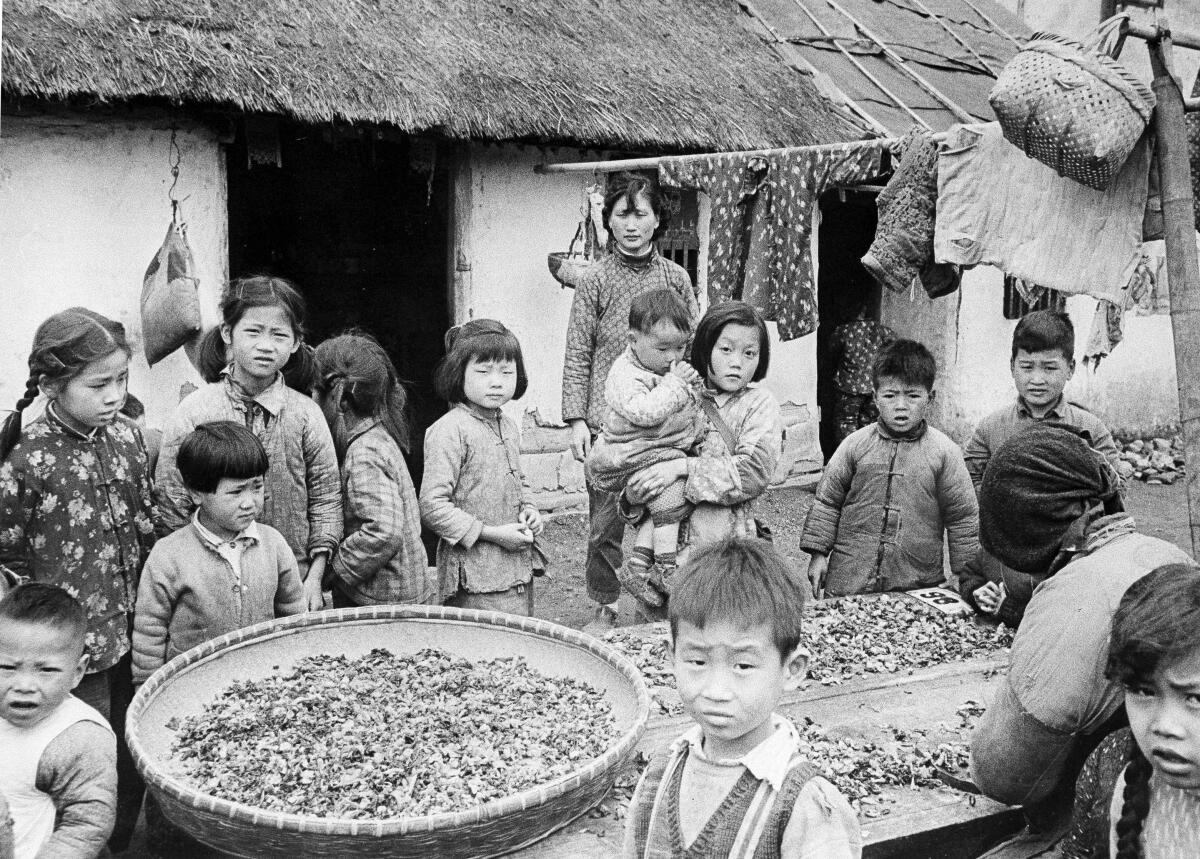
In the first decade of the republic, China fought the Korean War; collectivized, or abolished private ownership; and launched an industrialization drive called the Great Leap Forward, which triggered famine — or as Yu calls it, “three years of natural disasters,” using the official description of the crisis.
During this time, learning the abacus and calligraphy was compulsory for children. For Yu’s family, the old wooden calculating machine became the key to prosperity.
He became an apprentice chef at Beijing International Hotel. He spent four years in the air force, where he was deployed in the administration office because of his skills on the abacus. His wife, Zhang Honglan, also benefited from her lightning-fast abacus skills, working in the accounting department of one of China’s largest state owned companies, Capital Steel.
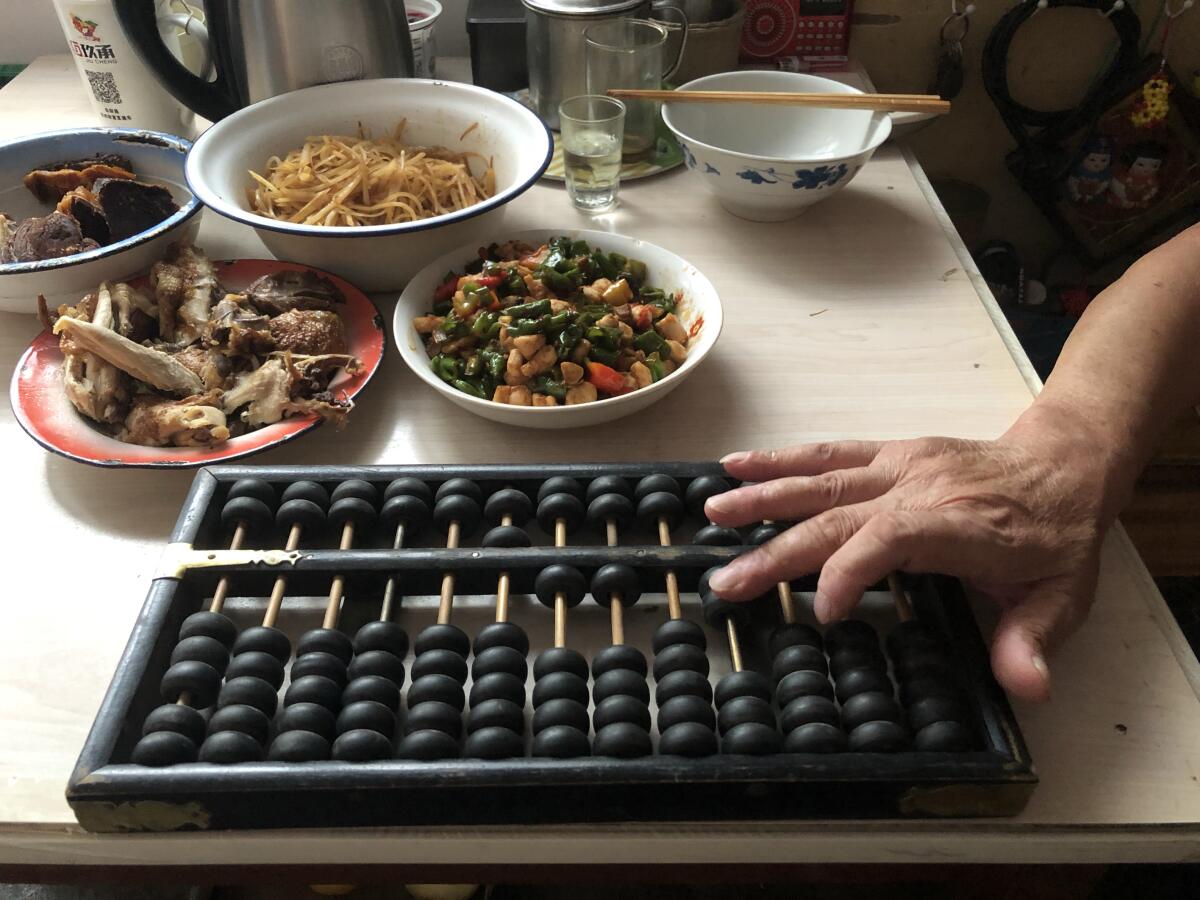
Their skills won them long-held, stable, predictable jobs, so their family fared well, even if their abode was humble. Zhang worked all her life in the company until retiring in 1998. After the air force Yu worked his whole life as a chef. Their joint pensions are the equivalent of $1,400 a month, twice what they need to survive.
An antique family abacus holds a revered place in the tiny one-room house Yu and Zhang share in the old alleys of Beijing.
Yu, 72, said only people who don’t understand the Communist Party complain. The arc of history has led him from deprivation to plenty. One recent lunchtime he and his wife sat down to stir-fried chicken and green beans, fried chicken, braised beef, rice and stir-fried potatoes.
“In the past we had food rations and we couldn’t afford much. There has been an amazing increase in the quality of the food and quantity of the food,” he said.
THE GREAT LEAP FORWARD
1958-60: Mao’s plan to transform China into an industrial country involved abolishing private land, drafting peasants into communes and centralizing most grain. People collected cooking pots, agricultural tools and scrap metal to melt down in local smelters, producing useless slag. The policies led to a collapse in agricultural output and mass starvation. As many as 45 million people died.
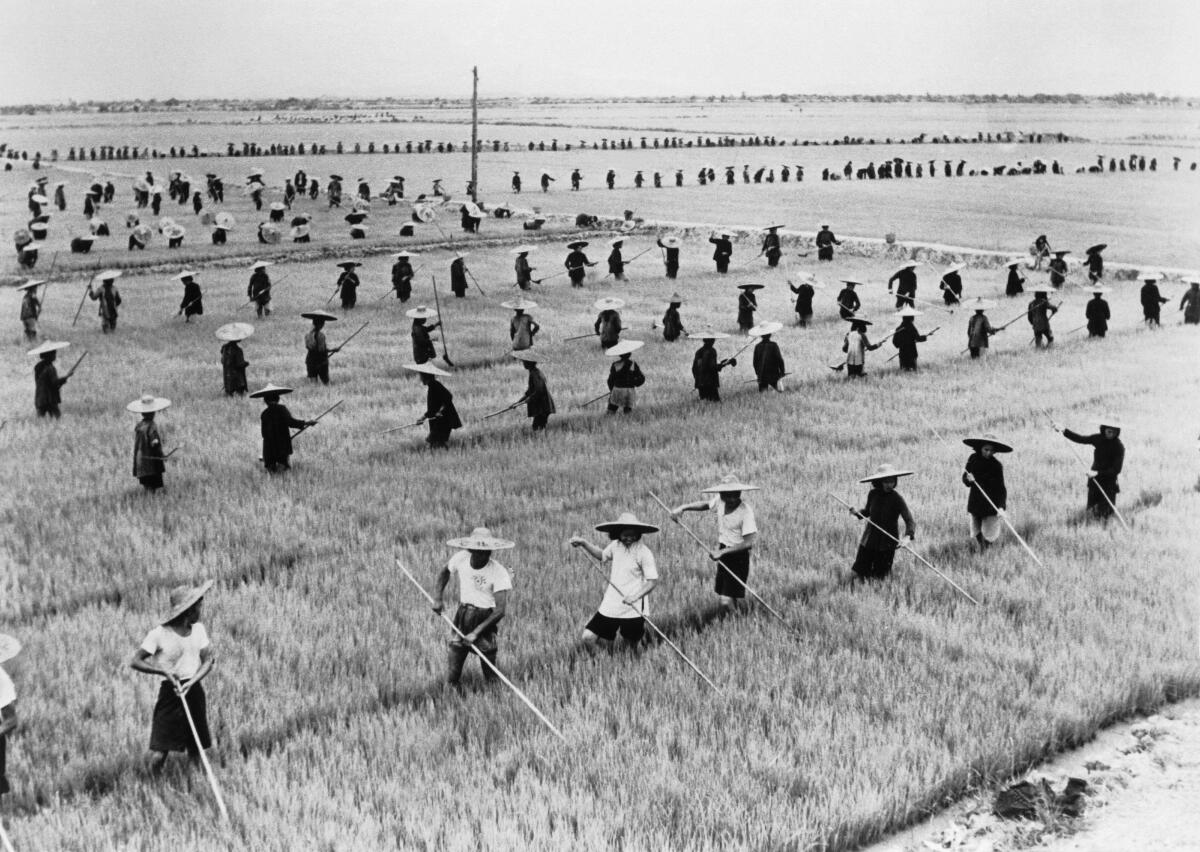
THE CULTURAL REVOLUTION
1966-76: At the height of Maoism, Chairman Mao’s call for “constant struggle” became a tornado of radical violence that tore society apart and traumatized the population. It was Mao’s 10-year drive to purge China of bourgeois tradition and the Communist Party of personal political rivals through radical, constant “class struggle.”
When Mao died in 1976, 10 years after launching the Cultural Revolution, Li Shaomin could not cry.
Li then 19, was a propaganda artist for the People’s Liberation Army, and he had 24 hours to paint a giant black-and-white portrait of Mao for his unit’s memorial service.
“He was God. How could God die?” he said.
His parents were Communist Party revolutionaries. His mother, who believed Mao’s call in 1956 for intellectuals to criticize the party, had spoken up — only to be sent to a labor camp in Gansu province.
His father, a young Marxism professor, divorced her to save his career. He was promoted to the Central Propaganda Department in Beijing.
Then came the Cultural Revolution. At the propaganda department, everyone threw their books into the courtyard and set them on fire, following Mao’s directive to destroy the “poisonous weeds” of non-Maoist thought.
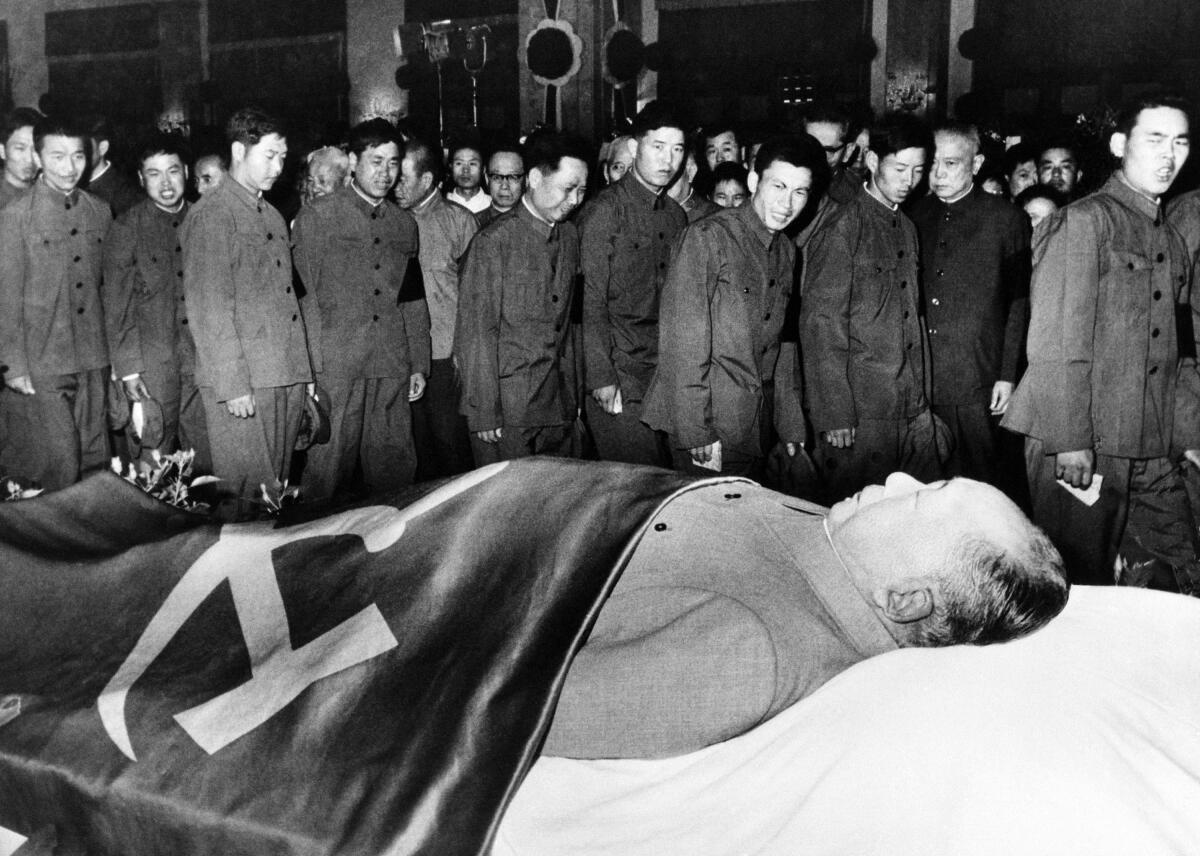
Suspicion ravaged society. One by one, propaganda officials denounced one another as counter-revolutionaries. Li’s neighbor killed himself with sleeping pills. Others committed suicide in other ways.
Youth militias called Red Guards roamed the country, smashing temples, museums and schools, and beating teachers, landowners and other authority figures. There were brutal daily public “struggle” sessions and mass killings.
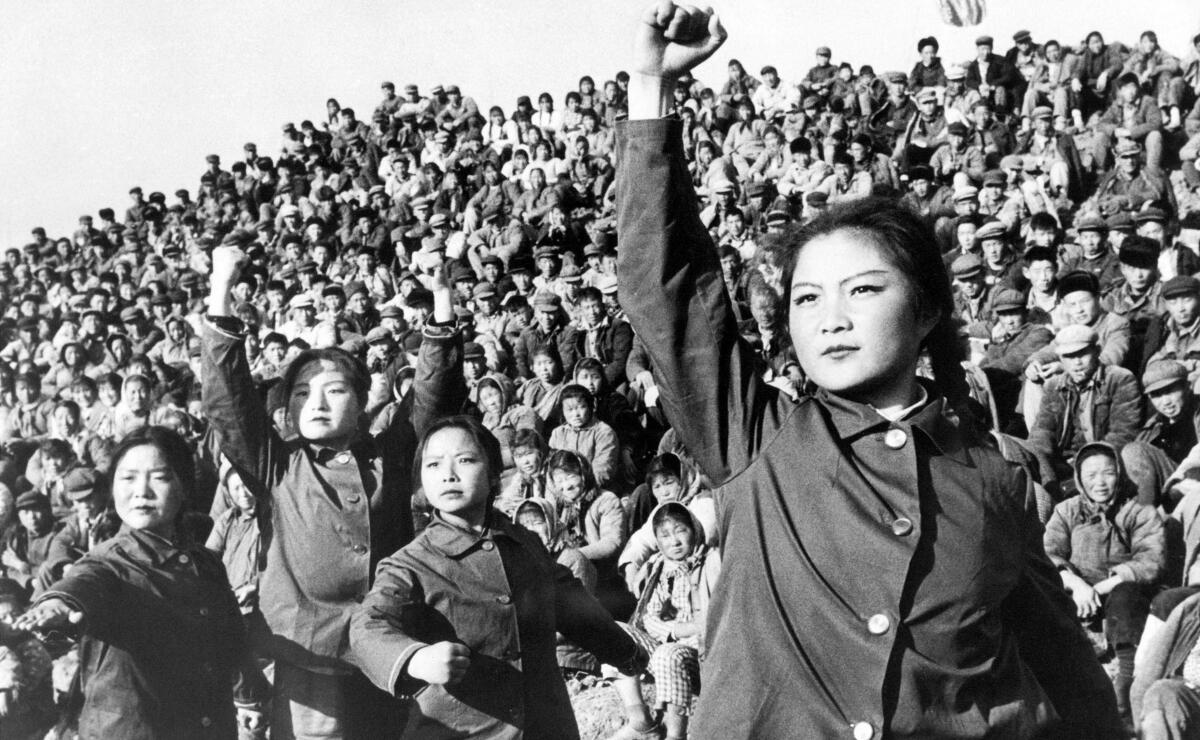
Li’s father was denounced and sent with his family to perform manual labor in rural Hebei province. Later, Li joined the army as an artist. He painted posters criticizing Confucius, imperialism, capitalism and whichever party leaders suddenly fell into Mao’s disfavor.
“It’s a competition to see who loves Mao Tse-tung the most, and you keep killing and denouncing each other as anti-Mao,” he said. “It was just crazy, because none of us were anti-Mao.”
OPENING UP, CRACKING DOWN
The 1980s were China’s decade of opening up. Deng Xiaoping, Mao’s successor, introduced the idea of socialism with “Chinese characteristics,” starting with economic reform in 1978.
By the late 1980s, a liberal current was electrifying China’s youth. They demanded that China embrace democracy. That movement came to a brutal end in the Tiananmen Square protests of 1989, when Deng made the limits of liberalization clear: the party was not to be challenged.
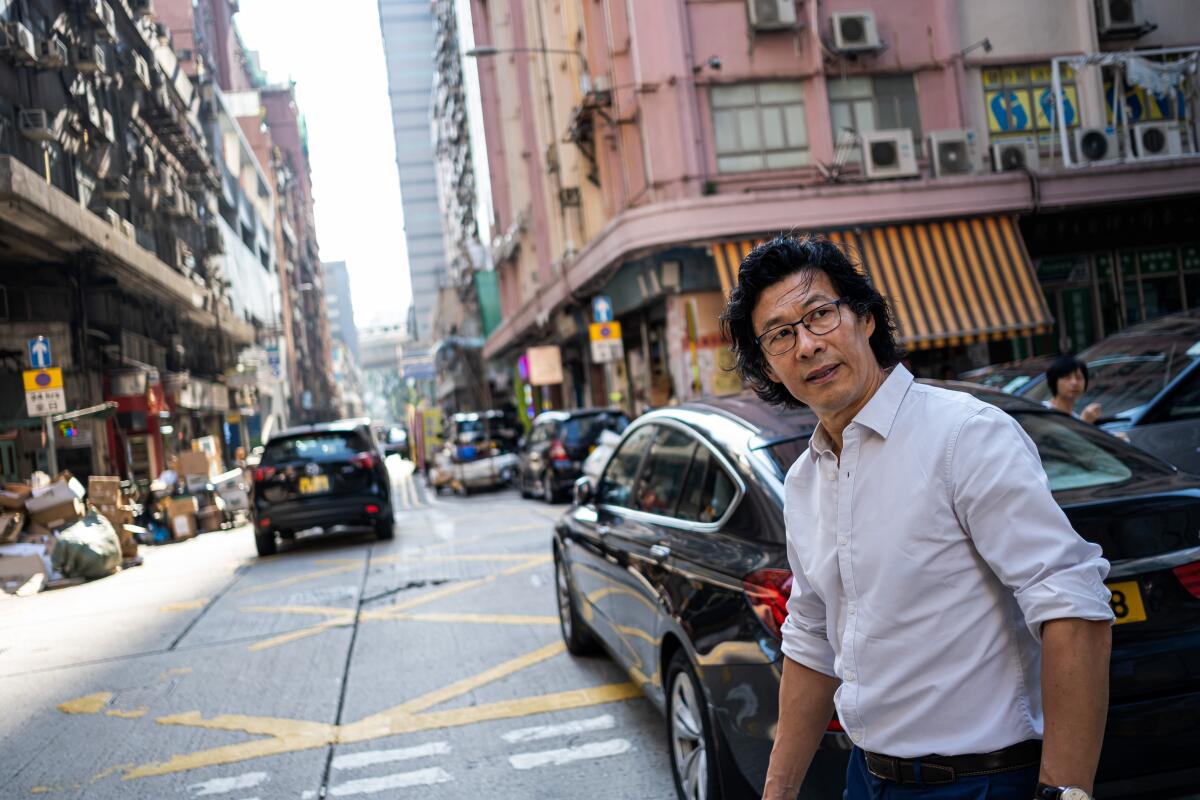
The guns had started firing in early June 1989, but Han Dongfang vowed he would not leave Tiananmen Square.
Han, a railway electrician, had organized workers to support months of student protests and helped set up China‘s first independent trade union. That June night, flashes of gunfire lighted the sky.
“Before that moment, I truly never believed the Chinese army would shoot on the students of Beijing,” he said.
Han had been a soldier in the ‘70s and ‘80s. He joined the People’s Liberation Army in 1979, inspired by the idea that a soldier and a general were equal under communism. He embraced the selfless sacrifice of a model soldier: dedication to the nation, the people and the Communist Party.
“Soon after I joined, I realized it’s a lie.”
After confronting the political commissar, he was blocked from promotions and joined the railway.
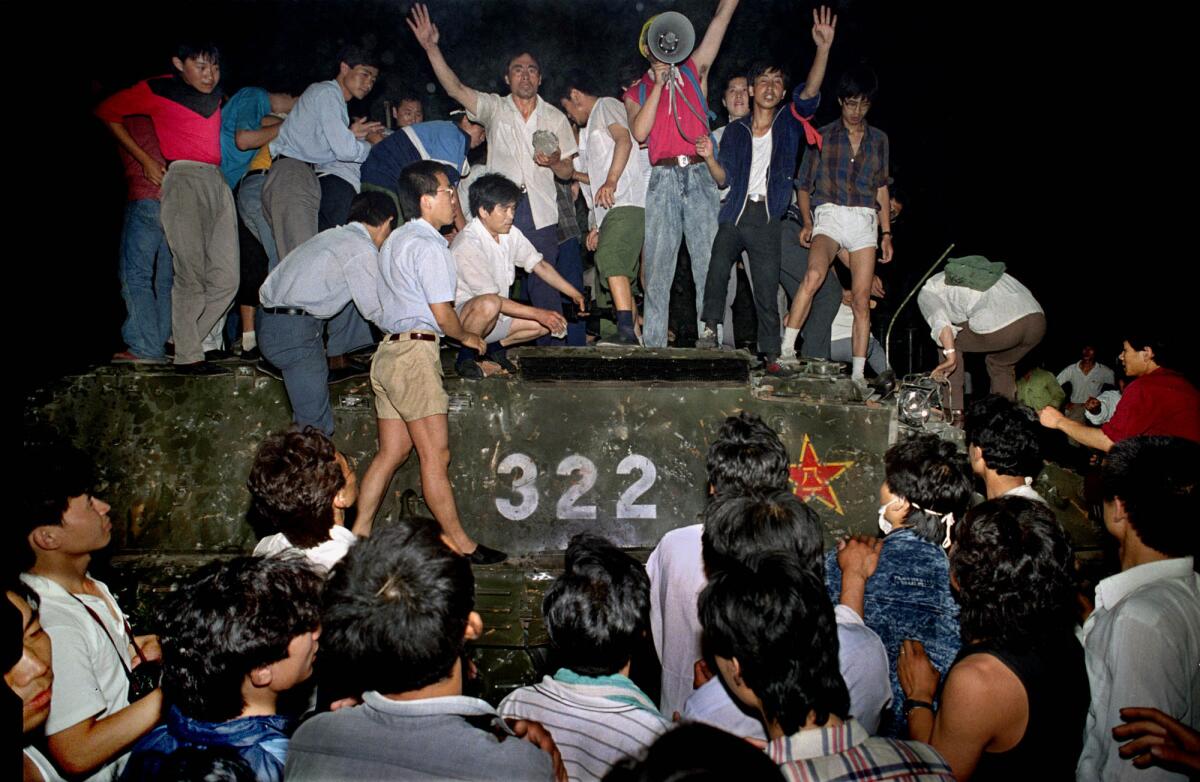
He happened to pass Tiananmen Square with his wife on the first day of the student protests in 1989. He was transfixed by the students’ words. The protests had begun in mid-April, and Han started giving his own speeches about workers’ rights, and inspired workers to take part in the protest movement. He helped start the Beijing Workers’ Autonomous Federation in April 1989, the first independent trade union.
Han was jailed for 22 months for his role in the protests, nearly died of pneumonia, and had to have lung surgery in the United States. Living in Hong Kong, he dedicated his life to Chinese workers’ rights, trying to establish democratic unions and collective bargaining through an organization he founded in Hong Kong in 1994, China Labor Bulletin.
“Sometimes when I’m tired or frustrated, I remind myself to continue the battle because it’s a moral obligation.” he said.
THE ONE-CHILD POLICY
Alarmed about feeding China’s vast population and other economic concerns, authorities had introduced the one-child policy in 1979, imposing forced abortions or punitive fines for those who defied the ban. Beginning in the 1980s, rural parents could have a second child, and as of 2016, all parents could have two.
In the abortion room, the mother and doctor stared at the still, silent infant girl. And then she moved.
Tami Xiang was not supposed to have been born. She was to have been forcibly aborted under China’s one-child policy.
A few weeks earlier her pregnant mother, Zhou Guangtao, had been hiding from abortion officials in a cave near her Hebei province village in winter 1984 when she lighted a fire to escape the bitter cold. Villagers saw the smoke. She was arrested for defying the one-child policy with her scandalous fourth pregnancy.
She was taken to the family planning center, responsible for enforcing the policy limiting families to a single child.
Zhou and her husband managed to bribe a relative who worked there. They paid for a doctor to induce a premature birth instead of using the toxic abortion injection.
At school, Xiang was scorned as the child of poor farmers because her illicit birth was not registered. To get registration papers, her parents paid two years of their salary in fines, and part of their land was confiscated.
Xiang made the most of the life she was never supposed to have. She has photographed China’s poorest families, creating evocative portraits of the “left-behind” children of migrant workers raised by their grandparents, and of pensioners pictured with what little they could buy with a $12 pension. She is completing a doctorate in contemporary arts at the University of Western Australia in Perth.
Last year, she shared details of her history as a nearly aborted child on a social media group of more than 100 former classmates. They denounced her for showing the dark side of China.
“They only talk about the good side of China, not the dark side. But it’s the reality,” she said. “My mother was a very strong woman. All she wanted was to get this baby to come out alive.”
‘THE ONLY HARD TRUTH’
“Development is the only hard truth,” Deng Xiaoping famously said in 1992 on a tour of special economic zones in southern China, meant to revive business after the Tiananmen Square killings. After decades of famine, turmoil and a failed democracy movement, China turned to the pursuit of wealth, dropping strict communist economic policies in favor of more open markets.
By the early 2000s, Chinese growth rocketed into the double digits. Standards of living rose, but so did inequality. In 2016, a Peking University report found that the top 1% of households in China held one-third of the nation’s wealth, while the bottom 25% of households shared only 1%.
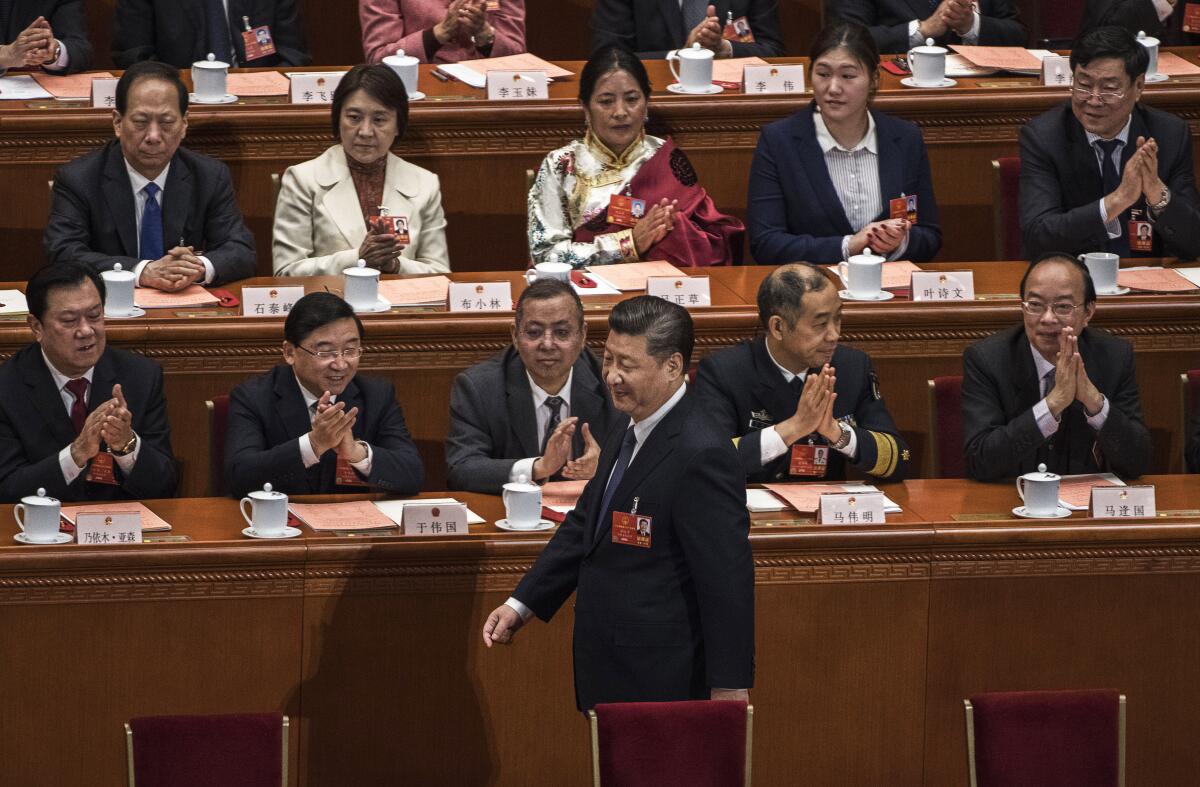
China’s economic rise was enabled by masses of migrant laborers who worked slave-like hours without legal protections. But as civil society and internet access spread, the workers — especially women — began to organize.
Sing winced every time the factory boss called her to his office. “Hey, little girl, do you have a boyfriend?” he’d ask, leering.
At 15, she had gone with her parents from their Hunan village to Guangzhou, capital of Guangdong province, in the early 2000s to work at a cellphone cover factory.
China was manufacturing cheap goods for the world, and droves of migrants from rural provinces were flocking to southern China, lining up overnight to compete for factory jobs that paid little — about 57 cents per hour — but better than any money they could make at home.
“I felt like, wow, I can just pick up money on the ground in Guangdong,” said Sing, who asked to withhold her full name for protection from authorities, who have recently arrested social workers and labor rights activists.
But factory life was harsh. The dormitories were tiny, with stinking gutters and no hot water. Sing worked from 7 a.m. until 2 a.m., seven days a week, all year round.
More than anything, Sing hated that as a woman, she had no respite. Women were always working, raising kids, cooking, cleaning, under pressure to bear sons and criticized by their families for not being sons themselves.
She lay in bed wishing she could sleep for days, thinking, “Is this all there is to life?”
Then a friend introduced Sing to a workers’ organization supported by a nonprofit from Hong Kong. There, Sing heard a radical idea: “It is social gender roles that give all the work to women.”
She began volunteering with women’s labor organizations, leaving the factory in 2007 to work for one full-time as a community organizer.
As internet access and cellphones became widespread, so did workers’ demands for better treatment. Thousands of protests broke out each year over unpaid wages and insufficient protections.
By 2012, Sing was training factory women in labor law and collective bargaining, helping them to demand days off and social security. She found a sense of purpose in empowering herself and others to seek change.
That same year saw Xi Jinping rise to general secretary of the Communist Party and then early the next year president of the People’s Republic of China. He launched a sweeping crackdown on civil society, labeling it in a leaked internal document in 2013 as one of seven forbidden “Western values” that threaten party authority.
Sing, 33, said authorities seem to think that without rights advocacy groups, workers will quiet down.
“They don’t know that when workers get to a desperate point, problems will happen,” she said. “Everything goes back to rights.”
::
The light was always on. There was no day or night. Two guards were always in the cell, but they rarely spoke to the prisoner.
Security cameras and two silent guards watched him constantly, even as he squatted on an open latrine before them.
In China these conditions are standard for detained human rights advocates, activists and dissidents. Lawyer Sui Muqing knew it. He had taken many such cases.
But then the police came for him too. He found himself held in the same kind of cell, in the same conditions. He almost broke under days of questioning and no sleep.
“I was just doing my job. I paid a high price for that,” Sui, 50, said in an interview.
With his neat haircut, tailored linen jacket and square framed spectacles, Sui once saw himself as a cog in a working legal system, offering people the right to a defense.
Starting in 2003, a lawyers’ movement had blossomed in China, defending human rights cases and pushing for better rights protections under the rule of law.
But when Xi became president in 2013, he launched a sweeping crackdown on rights activists and lawyers. Sui and about 300 other human rights lawyers and legal assistants were arrested in what was called the “709 crackdown” on July 9, 2015.
Lawyers disappeared in prisons where they could not be traced, were sentenced to long jail terms, disbarred or stripped of their right to work. Some were tortured, according to colleagues and family members. Many were coerced into making confessions — sometimes televised as propaganda.
Sui spent six months in detention enduring interrogation and sleep deprivation. To escape the torture, he signed a confession admitting that he had tried to slander and subvert the state, taking hints from the police on what to say.
He was released in 2016 and kept taking rights cases. But last year, he was disbarred.
“The more I care about society, the more I realize that throughout the whole of our society, from ordinary people to bureaucrats, there is not enough respect for the rule of law,” he said.
Few lawyers are still willing to defend dissidents and activists. Lawyers who accept the cases of arrested human rights lawyers often end up needing lawyers themselves.
“A human rights lawyer is not a political dissident. The government may not like us, but they shouldn’t crack down on us,” he said.
He had once believed China was ready to embrace the rule of law. “The 709 crackdown proved we were wrong. We underestimated the government and its will to stop us.”
::
China’s strict internet censorship places tight limits on what can be posted, and blocks access to many international sites. But livestreaming has swept the country in recent years, with all types of people posting videos of their lives and earning money from donations or e-sales.
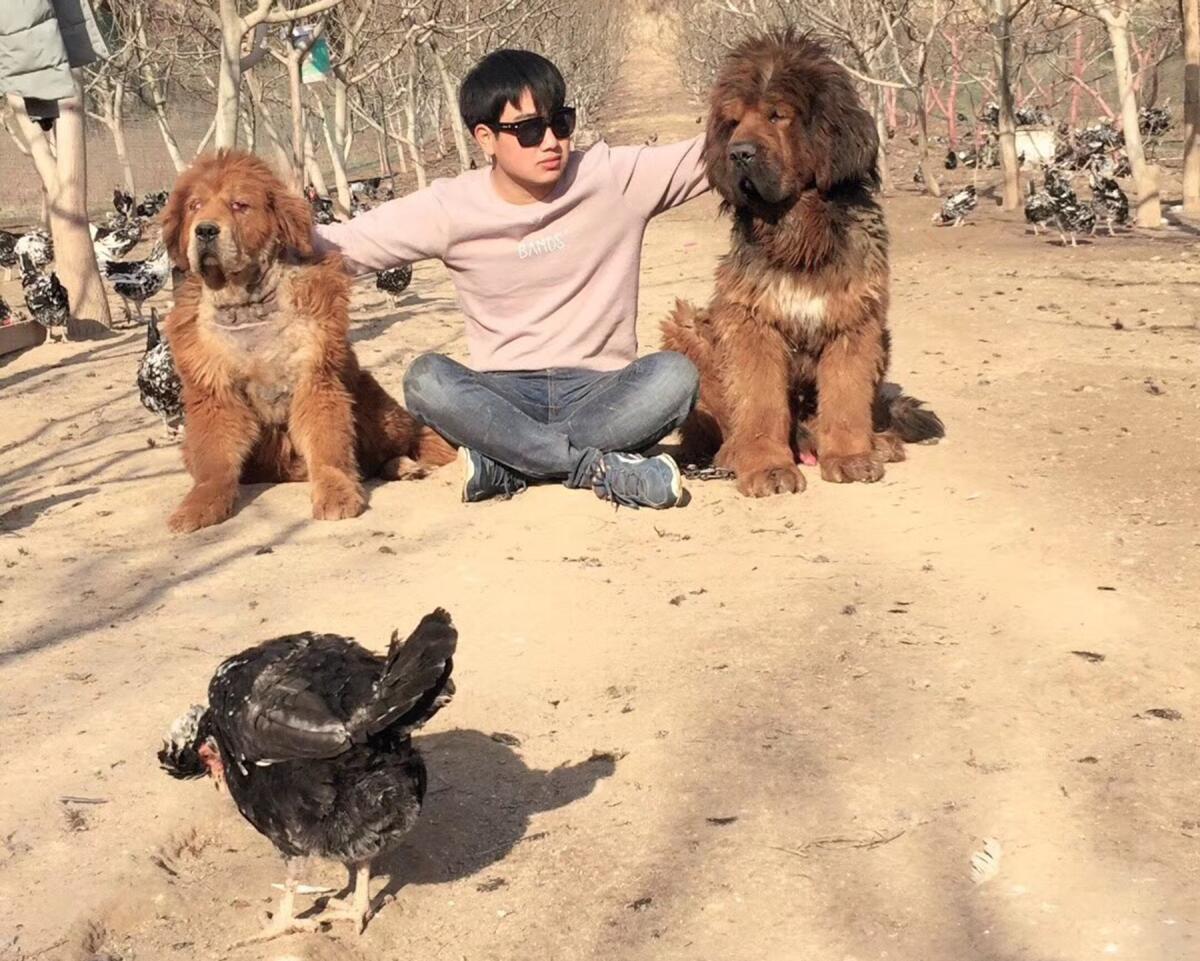
His grandparents warned him, and so did his parents. Don’t do it. You will fail as a chicken farmer.
But Shang Yukang had tried many things during the eight years since he left school in rural Gansu at age 15 in 2011. In Beijing, he barbecued oily fish 12 hours a day with two days off a month, but never got paid. In Suzhou, he worked at a factory making cellphone chips.
“It was so boring and repetitive. I couldn’t keep on doing a job like that,” said Shang, 23.
In Guangzhou, he worked as a safety officer checking safety goggles. In Fujian, he drove a truck.
He had been brought up by his grandparents on a walnut farm because his parents were migrant workers, always away in some steel factory. After three years as a migrant worker in big cities, he returned to his mountain home planning to raise chickens. His family warned that if he insisted on his plan, “don’t ever come home again.”
He insisted.
He spent more than half his savings on chicks and equipment — not just any hens, but an expensive, high-quality breed. It was too cold for them, so he raced out to buy a heater and only one died. Seeing the relative success of his first effort, his grandparents started talking to him again.
He sold the hens and lost nearly $700. The second year, his family borrowed money to invest, and he built a chicken pen on the walnut farm. Fired with hope, he bought 2,000 chicks.
But disease killed 1,500. He buried the chickens at night hoping no one would see. Neighbors laughed at him. His grandparents called him a failure.
“I cried many times. I cried in my room. I cried on my chicken farm when I saw a bunch of them dying, and I cried when I had to bury them. I felt as if everything was hopeless.” His problem: There was no market for high-quality, expensive chickens in Gansu.
A fight between two hens changed his life.
Shang took the advice of a friend to record the fighting birds and upload it on Kuaishou, a video app.
He filmed some very boring videos on “a day in the life of a chicken.” Then he had an idea: He clamped his phone onto a tree branch, laid out chicken feed on the dirt below in the shape of a heart, while his grandparents scolded the waste of feed.
As thousands of pecking chickens formed a perfect heart, he filmed a video that would be viewed millions of times. Orders from all across China poured in. Now he is rapidly expanding his chicken farm.
“My grandparents had no idea what the internet was,” he said. “Now they understand the internet is like something magic that can help their grandson to become a success.”
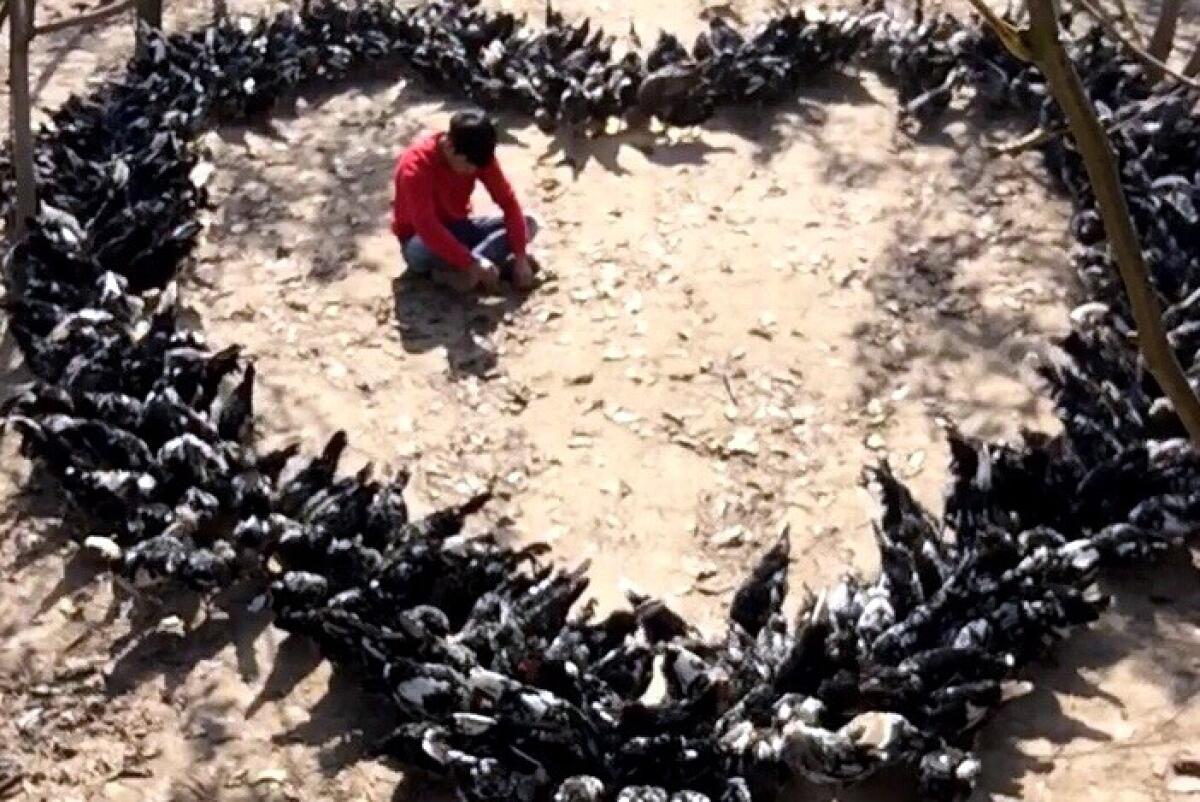
There are roughly 20 million Muslims in China, less than 2% of the population. In a recent campaign under Xi to “Sinicize” religion, authorities have shut down underground churches, stripped mosques of Islamic features and used “reeducation” to shape minorities in a state-defined Chinese image — one conformed to the Han ethnic group that makes up 92% of China’s population.
Cui Haoxin thought he was going to a poetry workshop, not an interrogation.
The poet, 40, who also goes by the pen name An Ran, was invited with a group of minority writers — Kazakhs, Tibetans and Hui Muslims like him — to a week of “poetry training” at a Communist Party-sanctioned literary college in Beijing in 2018.
It turned out to be a week of ideological reeducation, where the minority writers were asked to write essays praising President Xi. When Cui inserted references in his essays to the Xinjiang region, where China has detained hundreds of thousands of Muslim minority Uighurs in reeducation camps since 2016, he was interrogated by security officers.
“I was hoping in an indirect way to say a few sentences on behalf of those people, to beg for mercy,” Cui said.
After the trip, police visited his home, interrogated him again and demanded he stop writing about Xinjiang online. They threatened his family, who urged him to stop speaking up.
Hui Muslims like Cui are partially descended from Central Asian traders who came to China on the ancient Silk Road.
Just a few years ago, Chinese authorities were trying to use Hui culture to appeal to Islamic countries under the Belt and Road program, China’s global development initiative.
Arabic road signs and Hui cultural theme parks once decorated cities like Yinchuan in Ningxia, a Hui region that authorities hoped to make a trading hub with the Middle East. Those efforts have been reversed by the government’s recent campaign to “Sinicize” religion.
“What is Sinicization? It means making us Han,” Cui said. “We have our own culture, religion, even our own language. Why do you have to deny our identity?”
Cui still publishes his writing online, but only on a blog that is censored in China. The more he reads and speaks about authorities’ methods of surveillance and control in Xinjiang, the more he fears those methods will soon be applied to him as well.
On Chinese sites, minorities discussing religion and identity have had their accounts shut down, while nationalistic, derogatory stereotypes of Islam have become commonplace.
“You see all these Islamaphobes, and many have never even met a Muslim,” Cui said. “They see Islam as an outside culture, and they think it’s a threat to themselves.
“This kind of extremist thinking and action, like the Cultural Revolution, will get bigger, and the victims will not just be the minorities. It will spread to the rest of society.”
::
Despite issues such as human rights complaints and trade problems with the United States, a new generation of Chinese elite is confident in Communist China’s future as a superpower.
David Li gasped when Jack Ma, billionaire founder of e-commerce giant Alibaba and idol of Chinese entrepreneurs nationwide, walked into the room.
Li, 33, was in a session at Hupan University, an exclusive academy founded by Ma for a few dozen Chinese entrepreneurs selected each year to learn from older Chinese tycoons and billionaires.
Li is co-founder of Hesai Technology, a Shanghai-based startup making laser sensors called lidar for self-driving cars. He was chosen from thousands of applicants to learn “unique things that Chinese entrepreneurs should learn, not necessarily from the Stanfords and Harvards of the world,” but from Chinese businessmen, he said.
They spent three days at the old Communist Party base of Yanan, discussing best practices from Mao and Qin Shi Huang, the first emperor of a unified China, and how to apply them to corporate leadership.
Li studied at Beijing’s Tsinghua University and got a robotics doctorate from the University of Illinois before founding Hesai in 2013 with two friends, Chinese Stanford grads he’d met at a party in Palo Alto.
They returned to China because it made business sense, Li said. There were more smart engineers available for hire at lower costs. It helped that China was investing heavily in high-tech industries, manufacturing was cheap in Shanghai, and Chinese venture capitalists were as rich as those in California, if not richer.
By 2019, his company had more than 700 employees, had raised more than $150 million in global investment, and boasted customers in 18 countries.
It had also been sued by Velodyne, a San Jose-based lidar company, for patent infringement. Velodyne said in a complaint filed Aug. 13 that Hesai and another Chinese company, Robosense, had copied Velodyne’s lidar technology.
Li said Hesai will fight back. He said the company has “tons of patents for all our technology” in China and the U.S.
“I understand the American middle class did not have its best decade. But blaming China is the wrong thing to do,” he said. “The smartest American people would understand the importance of China and try not to make China angry.”
Start your day right
Sign up for Essential California for news, features and recommendations from the L.A. Times and beyond in your inbox six days a week.
You may occasionally receive promotional content from the Los Angeles Times.